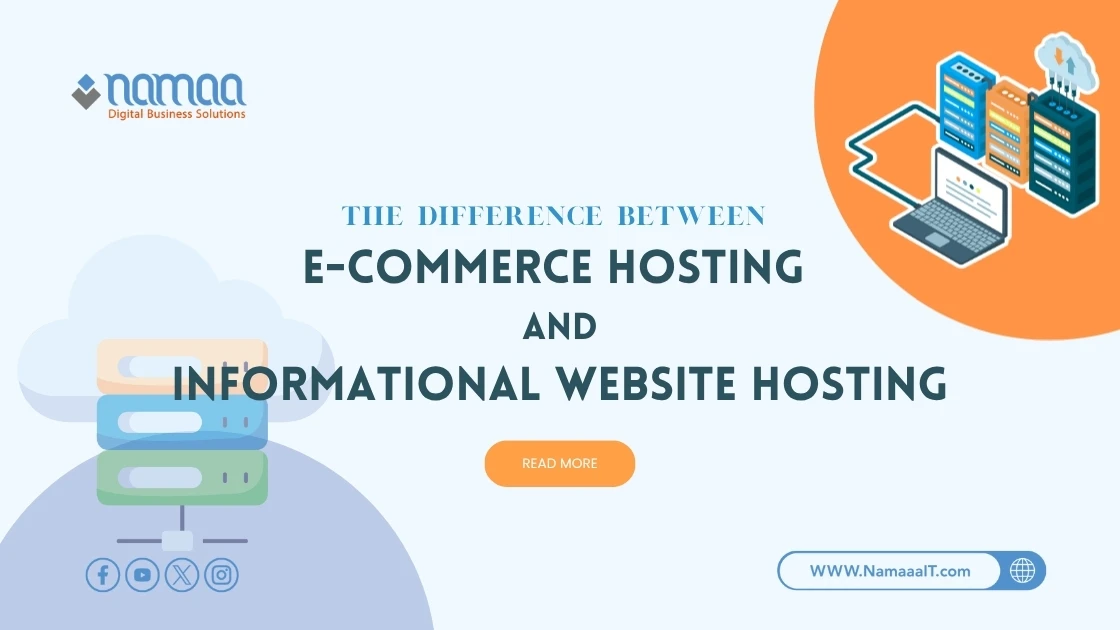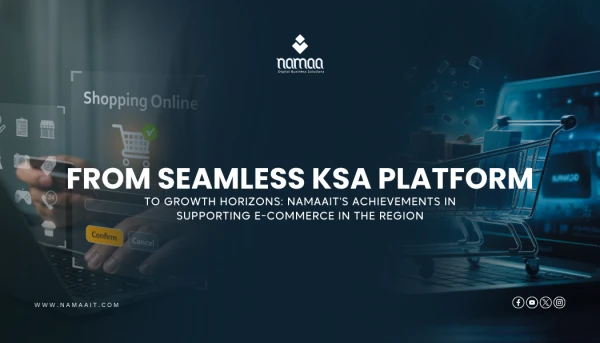Understanding the difference between e-commerce hosting and informational website hosting is essential for choosing the right infrastructure for your digital project.
While a simple informational website can operate efficiently on a shared hosting plan with limited resources, e-commerce stores require far more robust hosting capabilities.
This is because online stores need advanced features such as SSL certificates to secure financial transactions, larger storage and bandwidth capacity to handle multiple products and high-quality images, as well as the ability to withstand traffic surges, which standard hosting services may not provide efficiently.
What Is Web Hosting and What Are Its Types?
Web hosting is the service that allows you to publish your website on the Internet, making it accessible to visitors worldwide.
In simple terms, it’s the process of renting space on a server, a powerful computer that remains connected to the Internet 24/7, to store all your website’s files and data text, images, and videos.
When someone types your domain name into a browser, the server displays your site’s content to them.
There are several types of hosting to suit different needs:
Shared Hosting: The most common and affordable option, where your site shares server resources with others. Ideal for small websites and personal blogs with modest traffic.
VPS Hosting (Virtual Private Server): Provides you with dedicated portions of server resources for better control and performance perfect for growing mid-sized websites.
Dedicated Hosting: You rent an entire server exclusively for your site, ensuring maximum performance, security, and control. Best for large, high-traffic sites and e-commerce stores.
Cloud Hosting: Uses a network of interconnected servers, offering excellent flexibility and reliability. Your site’s files are distributed across multiple servers, so if one fails, others keep your site running smoothly.
What Is E-Commerce Hosting?
If you plan to sell products or services online, choosing the right hosting is the first crucial step toward success.
E-commerce hosting is a specialized type of web hosting designed to meet the unique demands of online stores. Unlike regular websites, online stores require much more powerful resources to ensure a smooth and secure shopping experience.
Your store’s success depends heavily on hosting performance not just product quality or site design.
Robust hosting ensures fast product page loading, secure transactions, and customer data protection, which in turn boosts customer trust and improves conversion rates.
What About Informational Website Hosting?
Informational websites such as personal blogs or small business sites are far less demanding in terms of hosting requirements.
These sites are typically static, focusing on delivering content rather than handling transactions.
For that reason, shared hosting is usually more than enough. It offers basic resources such as adequate storage, sufficient bandwidth for expected traffic, and solid uptime all at a very affordable price.
Key Server Resource Differences Between the Two
The main difference between e-commerce and informational website hosting lies in the amount and nature of server resources required.
E-commerce stores are dynamic by nature. They need greater processing power to manage database queries, real-time inventory updates, and secure payment gateway processing all of which demand superior server performance.
Here’s a breakdown of the main differences:
CPU (Processing Power): Online stores need more CPU cores to handle simultaneous tasks like browsing, cart updates, and order processing. Informational sites can usually function well with one or two cores.
RAM (Memory): E-commerce platforms (e.g., WooCommerce) require significantly more memory to manage multiple operations efficiently often 2–8 GB or more, while informational sites may run smoothly with just 1 GB.
Storage: Stores need larger storage for product images, customer data, and order logs. SSD storage is recommended for its speed in reading and writing data, improving load times.
Bandwidth: Because e-commerce stores serve many media files and handle higher traffic volumes, they need greater bandwidth to prevent downtime during marketing campaigns or traffic peaks.
How E-Commerce Hosting Differs from Informational Website Hosting
Yes, there’s a fundamental difference. E-commerce hosting is built to handle the heavy workload of online stores product management, inventory tracking, order processing, and payment security all of which consume substantial server resources (CPU, RAM, and storage).
That’s why e-commerce hosting plans are tailored to provide:
High performance and speed: Ensures fast loading times for product pages and shopping carts, reducing bounce rates.
Advanced security: Includes SSL certificates, firewalls, and protection against cyberattacks.
Expert technical support: Teams specialized in troubleshooting e-commerce platforms.
Scalability: Easy resource upgrades as your business grows.
Cost Differences
Cost is one of the biggest differentiators.
Informational website hosting typically costs $5–15/month, since it requires limited resources.
E-commerce hosting, however, costs significantly more often starting around $50/month and reaching hundreds of dollars, depending on store size and traffic volume.
This higher cost reflects the need for dedicated performance, enhanced security, and scalability.
Can You Convert an Informational Website into an Online Store?
Technically, yes. You can upgrade a shared-hosting website into an online store but it usually requires a hosting plan upgrade.
Adding features like product listings, shopping carts, and payment gateways increases your site’s demand for resources.
A simple shared hosting plan may struggle with this load, causing slow performance or even downtime during traffic spikes.
The best practice is to upgrade to a VPS, cloud, or specialized e-commerce hosting plan to ensure stability, speed, and security.
FAQs
1. Does server location affect my store’s performance?
Yes. Choosing a data center close to your target audience reduces latency and improves page loading speed.
2. Should I use a CDN (Content Delivery Network)?
Absolutely. A CDN stores copies of your site’s static files (images, videos) across multiple servers worldwide, delivering them from the nearest location to each visitor. This improves speed and reduces server load.
3. What is “uptime” and why is it important?
Uptime measures how often your website is accessible online. For e-commerce, 99.9% uptime or higher is critical to avoid sales losses and protect your reputation.
4. Does e-commerce hosting include DDoS protection?
Yes, advanced plans (VPS, cloud, or dedicated) typically include basic DDoS protection to safeguard against traffic overload attacks.
5. Why is PCI DSS compliance important?
If your store handles credit card data directly, your hosting must comply with PCI DSS (Payment Card Industry Data Security Standard) a crucial requirement for customer data protection and payment security.
Summary
✅ E-commerce hosting requires up to 300% more CPU and RAM than informational sites to handle complex operations.
✅ Hosting for e-commerce starts at $50/month, while basic website hosting can cost as little as $5/month a fourfold difference.
✅ Online stores need SSL certificates and CDNs for enhanced security and faster performance.
✅ 99.9% uptime is essential to prevent revenue loss, unlike informational sites that can tolerate brief downtime.
✅ E-commerce platforms benefit from SSD storage for faster data retrieval, while informational websites can manage with smaller capacities.









